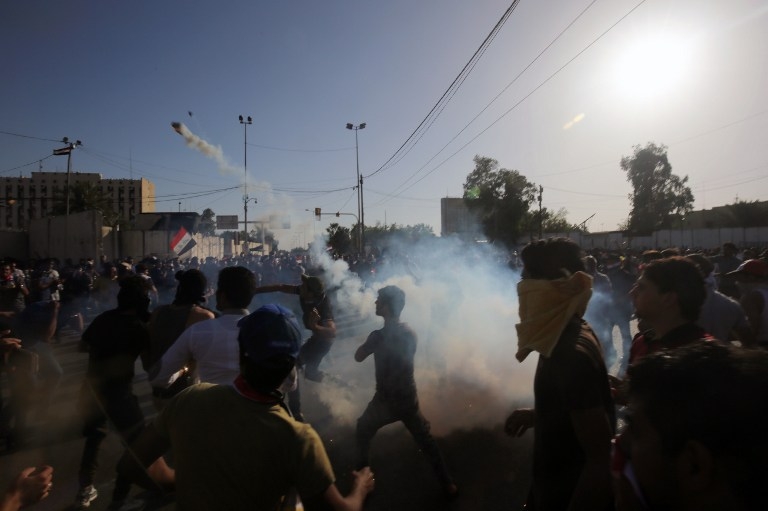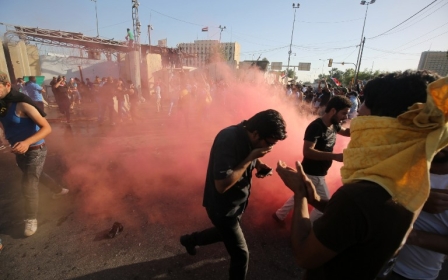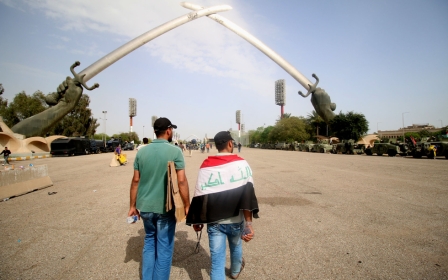Iraqi forces fire tear gas as thousands defy Abadi to protest in Baghdad

Security forces fired tear gas as thousands of protesters gathered in central Baghdad on Friday and attempted to head to the Green Zone, a fortified area they have breached twice in recent weeks.
Iraqi Prime Minister Haider al-Abadi called on the demonstrators, most of them supporters of cleric Moqtada al-Sadr, to stay home and security forces deployed to block their way to the Green Zone, but the protesters were undeterred.
Demonstrators pushed past security forces at Tahrir Square, breached a barbed wire barrier and attempted to pull down slabs of heavy concrete blast wall blocking Jumhuriyah Bridge, which leads toward the Green Zone, where Iraq's main government institutions are located.
Some protesters, who are calling for a new government, gave olive branches and flowers to security personnel at Tahrir, but events quickly escalated, and the forces fired tear gas in an attempt to disperse the demonstration.
"Those with masks, go this way to pick up the injured," one protester instructed those who had brought gas masks.
Last Friday, demonstrators forced a gate to the Green Zone and stormed the premier's office before being driven away by security forces with tear gas, water cannons and sound bombs.
A barrage of bullets were also fired into the air to disperse the protesters and push them away from the Green Zone and back across the Tigris River. Two people were killed during the protests and dozens injured.
Abadi sought to head off repeat protests this week, calling on Thursday for protesters to postpone their demonstration, as security forces were fighting to retake the city of Fallujah from the Islamic State group.
Protests have been held almost every Friday for weeks by people demanding the current government be replaced with technocrats, a measure that Ababi proposed in February, but has faced staunch opposition from parties that rely on control of ministries for patronage.
Sadr, a Najaf-based cleric who led an uprising against US-led forces after the 2003 invasion of Iraq, has also demanded a technocratic government, encouraging his supporters to call for the change.
New MEE newsletter: Jerusalem Dispatch
Sign up to get the latest insights and analysis on Israel-Palestine, alongside Turkey Unpacked and other MEE newsletters
Middle East Eye delivers independent and unrivalled coverage and analysis of the Middle East, North Africa and beyond. To learn more about republishing this content and the associated fees, please fill out this form. More about MEE can be found here.




